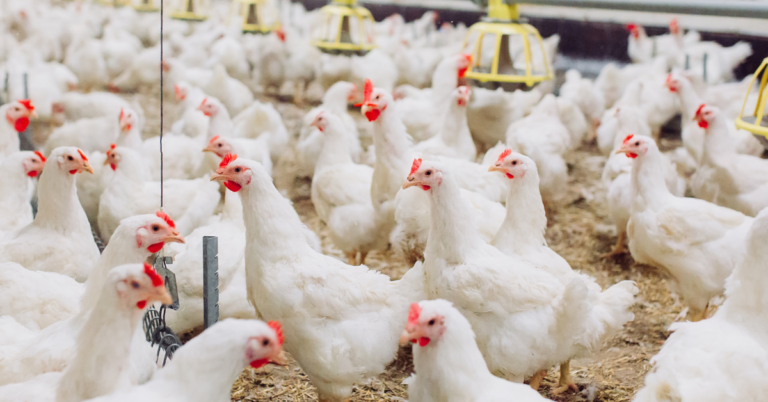New research from the Royal Veterinary College (RVC) has found economic costs, environmental impacts, and misalignment between consumer purchasing and understanding are key reasons for the limited shift of UK chicken meat production to the ‘Better Chicken Commitment’ (BCC).
Chicken meat is the most consumed meat in the UK but only a fraction is produced to BCC standards. The RVC interviewed 30 representatives with knowledge and engagement with BCC – specifically relating to why switching to slower growing broilers appeared particularly problematic.
Co-funded by the Animal Welfare Foundation and the British Poultry Council, the findings showed that participants generally agreed with scientific evidence that slower growing strains have better welfare than conventional fast-growing chickens housed under the same conditions. However, some felt increased economic and environmental costs associated with slower growth created a barrier. There were also uncertainties around consumer willingness to pay for these welfare improvements.
Differing views about the feasibility of solutions were underpinned by different conceptions of sustainability. Retailer and industry representatives emphasised the importance of minimising carbon footprint to meet net zero targets. They also felt a responsibility to provide ‘cheaper’ chicken to meet consumer demand and avoid consumers switching to poorer welfare imports costing considerably less. Because of these factors, they considered the use of slower growing broilers economically and environmentally unviable. These participants preferred to see a focus on improving the welfare of conventional broiler strains or using more efficient intermediate-growth strains as a compromise between welfare and sustainability.
In contrast, representatives of welfare charities, scientists and assurance schemes discussed sustainability more holistically. This included exploring environmental factors such as water pollution and biodiversity as well as social and economic factors. They perceived animal welfare as integral to sustainable production and thus it should not be compromised to meet environmental targets.
Dr Siobhan Abeyesinghe, Associate Professor in Animal Behaviour and Welfare Science at the RVC and lead author of the paper, said: “These results show that we urgently need a better understanding of UK consumer expectations about broiler welfare and welfare labelling, and how they prioritise welfare in relation to environmental costs and price. This is a major missing piece of the puzzle that stakeholders currently face for realistically evaluating both the importance and feasibility of different improvements to the welfare of over a billion chickens each year.
“If welfare improvements are to be market driven, then welfare gains must be significant for the additional costs involved, valued by consumers and balanced against other sustainability goals.”


